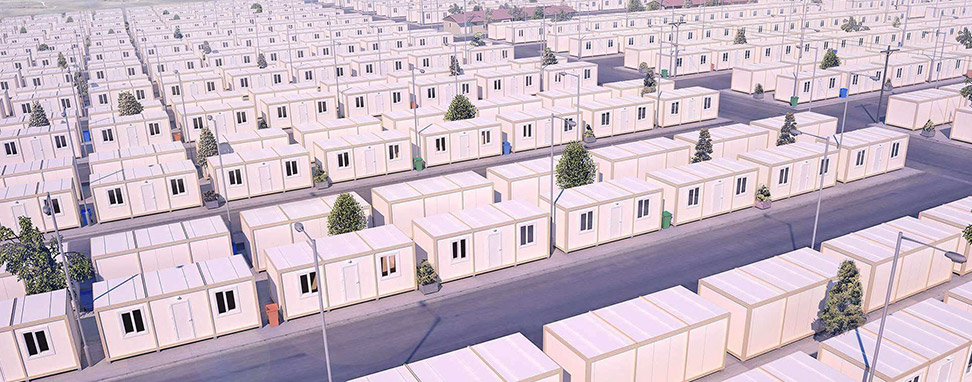Against the backdrop of increasing global housing demand and increasingly tight land resources, traditional construction methods have been unable to meet the diverse needs of modern society for living space. At the same time, sustainability, flexibility and environmental protection have become the core values of a new generation of architectural design. In recent years, an innovative architectural concept, Expandable Container Homes, has become the focus of attention for its efficient use of space, low cost and environmental protection, especially in areas where urbanization is accelerating and natural disasters are frequent. More and more people are beginning to choose this new housing solution.
The concept of container homes is not new. At first, containers were widely used in the freight industry, and their sturdy and durable structure made them an ideal means of transportation. However, with the continuous development of technology and the transformation of architectural concepts, the use of containers has gradually expanded from the traditional logistics field to the housing field. Container homes have gradually become an important representative of new residential solutions with their unique construction methods, economy and environmental friendliness.
The limitations of single container homes are the fixedness of space and the singleness of function. This also prompted the emergence of expandable container homes. Unlike traditional container houses, expandable container houses can be flexibly expanded and customized as needed, and can quickly change the spatial structure in a short period of time to meet different living needs.

One of the most notable features of expandable container houses is their high flexibility. Through a unique design, containers can be expanded without changing the structure. This design allows residents to adjust the size and functional layout of the house at any time according to factors such as the number of family members and living needs. For example, residents can choose a single container as the basic space in the early stage, and add more containers to expand as needs increase, providing more bedrooms, bathrooms or storage space.
This flexibility is very suitable for rapidly changing living needs, especially in some temporary living places or emergency housing. Expandable container houses can quickly respond to emergencies such as urban expansion and post-disaster reconstruction, providing efficient and economical solutions.
Container houses are not only favored for their low cost, but also widely praised for their environmental protection. Many container houses are built with recyclable materials, which helps reduce construction waste and resource waste. In addition, the containers themselves are usually coated with rust prevention, which enables them to be used for a long time in harsh environments with extremely high durability and life cycle.

To further enhance sustainability, many container houses incorporate green energy solutions into their designs. For example, installing green technologies such as solar panels and rainwater collection systems makes these houses more efficient in terms of energy consumption and even enables a self-sufficient lifestyle.
Compared with traditional buildings, container houses have significantly lower construction costs. As a building unit, the container itself is much cheaper than traditional building materials and does not require complex land development and foundation construction. In addition, container houses have a short construction period and can usually be built in a few weeks, greatly shortening the time from design to move-in. This makes it an ideal choice for emergency housing, post-disaster reconstruction, low-income families and other groups.
Expandable container houses not only have great potential in the residential sector, but are also widely used in other fields. In terms of post-disaster reconstruction, many disaster-stricken areas provide basic living space through emergency resettlement using container houses. With the accelerated urbanization process today, container houses have also become an ideal choice for many urban fringe areas and emerging communities. In addition, more and more environmentally conscious consumers and construction companies have begun to use them as the preferred choice for environmentally friendly housing solutions.
In the commercial sector, container houses have also been widely used, especially as temporary offices, commercial display spaces, and hotel and catering service facilities. For example, some companies use containers as temporary solutions for retail stores or restaurants, which can reduce operating costs and provide a unique brand image.
With the continuous advancement of technology and design concepts, expandable container homes are expected to achieve greater breakthroughs in future development. Through intelligent and modular design, future container homes will be more intelligent and efficient, not only able to make more accurate space allocation according to the needs of residents, but also able to achieve linkage with IoT devices to enhance the living experience.
Expandable Container Homes are becoming an innovative solution for modern urban life and emergency living with their flexibility, environmental protection and economy. As people's pursuit of sustainable and intelligent living environments continues to increase, container homes will play an increasingly important role in human living styles.








